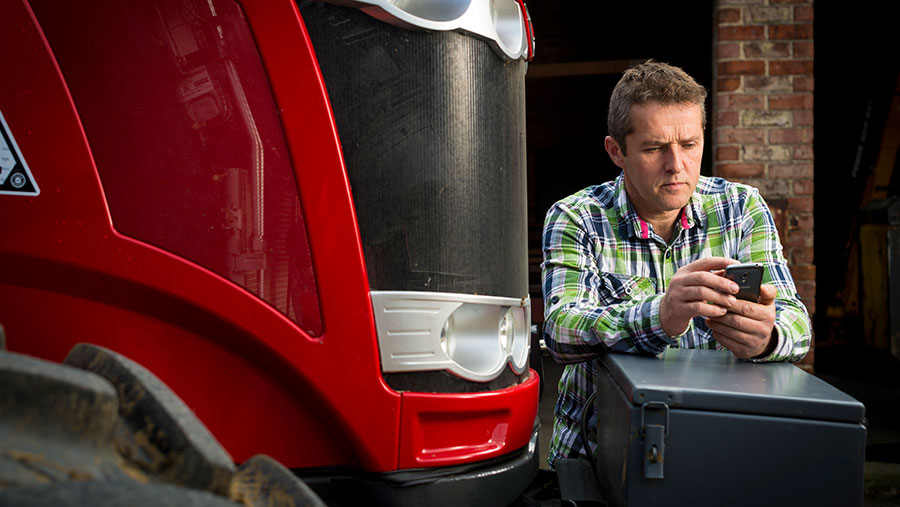- Select a language for the TTS:
- UK English Female
- UK English Male
- US English Female
- US English Male
- Australian Female
- Australian Male
- Language selected: (auto detect) - EN
Play all audios:
ABSTRACT The interaction between inbreeding and high-temperature stress was examined in the cactophilic fruit fly, _Drosophila buzzatii_. Embryos of four inbreeding levels (F = 0, F = 0.25,
F = 0.375, F = 0.5) were either maintained at 25°C throughout egg-to-adult development or were exposed to 41.5°C for 110 min at an age of 20 h. Hatching, larva-to-pupa survival,
pupa-to-adult survival, and egg-to-adult survival were estimated. Heat shock reduced hatching rates, but survival to adulthood for individuals that hatched was unaffected by the heat shock.
Inbreeding reduced the proportion of eggs hatching in the 25°C control group only. For larva-to-pupa and pupa-to-adult survival there was no interaction between inbreeding and stress. The
effect of inbreeding on egg-to-adult survival was stronger in the 25°C control group compared with the group exposed to heat shock. The results imply environmental dependency of inbreeding
depression and suggest that stress tolerance may not always be reduced by inbreeding. The thermal microenvironment of cactus rots in the field was assessed by measuring temperatures inside
17 rots. Internal rot temperatures varied with a maximum temperature of 48°C during the day. Selection for temperature tolerance in nature may have depleted genetic variation for this trait
limiting the effect of inbreeding on thermal resistance. SIMILAR CONTENT BEING VIEWED BY OTHERS INCREASED PUPAL TEMPERATURE HAS REVERSIBLE EFFECTS ON THERMAL PERFORMANCE AND IRREVERSIBLE
EFFECTS ON IMMUNE SYSTEM AND FECUNDITY IN ADULT LADYBIRDS Article Open access 12 August 2023 CHILL COMA ONSET AND RECOVERY FAIL TO REVEAL TRUE VARIATION IN THERMAL PERFORMANCE AMONG
POPULATIONS OF _DROSOPHILA MELANOGASTER_ Article Open access 25 May 2021 EVOLUTION OF CROSS-TOLERANCE IN _DROSOPHILA MELANOGASTER_ AS A RESULT OF INCREASED RESISTANCE TO COLD STRESS Article
Open access 14 November 2022 ARTICLE PDF REFERENCES * Bergh, S, and Arking, R. 1984. Developmental profile of the heat-shock response in early embryos of _Drosophila_. _J Exp Zool_, 231,
379–391. Article CAS PubMed Google Scholar * Charlesworth, D, and Charlesworth, B. 1987. Inbreeding depression and its evolutionary consequences. _Ann Rev Ecol Syst_, 18, 237–268.
Article Google Scholar * Coyne, J A, Bundgaard, J, and Prout, T. 1983. Geographic variation of tolerance to environmental stress in _Drosophila pseudoobscura_. _Am Nat_, 122, 474–488.
Article Google Scholar * Dahlgaard, J, Krebs, R A, and Loeschcke, V. 1995. Heat-shock tolerance and inbreeding in _Drosophila buzzatii_. _Heredity_, 74, 157–163. Article PubMed Google
Scholar * Ehiobu, N G, Goddard, M E, and Taylor, J F. 1989. Effect of rate of inbreeding on inbreeding depression in _Drosophila melanogaster_. _Theor Appl Genet_, 77, 123–127. Article CAS
PubMed Google Scholar * Falconer, D S. 1989. _Introduction to Quantitative Genetics_, 3rd edn. John Wiley and Sons, New York. Google Scholar * Feder, J H, Rossi, J M, Solomon, N, and
Lindquist, S. 1992. The consequences of expressing hsp70 in _Drosophila_ cells at normal temperatures. _Genes Devel_, 6, 1402–1413. Article CAS PubMed Google Scholar * Hauser, D P, and
Loeschcke, V. 1996. Drought stress and inbreeding depression in _Lychnis flos-cuculi_ (Caryophyllaceae). _Evolution_, 50, 1119–1126. Article PubMed Google Scholar * Hauser, T P, Damgaard,
C, and Loeschcke, V. 1994. Effects of inbreeding in small plant populations: expectations, and implications for conservation. In: Loeschcke, V., Tomiuk, J. and Jain, S. K. (eds)
_Conservation Genetics_, pp. 115–130. Birkhäuser, Basel. Chapter Google Scholar * Hoffmann, A A, and Parsons, P A. 1991. _Evolutionary Genetics and Environmental Stress_. Oxford Science
Publications, Oxford. Google Scholar * Komaki, M K. 1982. Inbreeding depression and concealed deleterious mutations in buckwheat populations, _Fagopyrum esculentum_. _Jap J Genet_, 57,
361–370. Article Google Scholar * Krebs, R A, and Loeschcke, V. 1994. Response to environmental change: Genetic variation and fitness in _Drosophila buzzatii_ following temperature stress.
In: Loeschcke, V., Tomiuk, J. and Jain, S.K. (eds) _Conservation Genetics_, pp. 309–322. Birkhäuser, Basel. Chapter Google Scholar * Krebs, R A, and Loeschcke, V. 1995. Resistance to
thermal stress in preadult _Drosophila buzzatii_: variation among populations and changes in relative resistance across life stages. _Biol J Linn Soc_, 56, 517–531. Article Google Scholar
* Krebs, R A, and Loeschcke, V. 1996. Selection for increased resistance and acclimation to thermal stress in _Drosophila buzzatii_. _Genetics_, 142, 471–479. CAS PubMed PubMed Central
Google Scholar * Langridge, J. 1962. A genetic and molecular basis for heterosis in _Arabidopsis_ and _Drosophila_. _Am Nat_, 96, 5–27. Article Google Scholar * Langridge, J. 1968.
Thermal responses of mutant enzymes and temperature limits to growth. _Mol Gen Genet_, 103, 116–126. Article CAS PubMed Google Scholar * Levin, D A. 1984. Inbreeding depression and
proximity-dependent crossing success in _Phlox drummondii_. _Evolution_, 38, 116–127. Article PubMed Google Scholar * Loeschcke, V, Krebs, R A, and Barker, J S F. 1994. Genetic variation
for resistance and acclimation to high temperature stress in _Drosophila buzzatii_. _Biol J Linn Soc_, 52, 83–92. Article Google Scholar * Maynard Smith, J. 1956. Acclimatization to high
temperatures in inbred and outbred _Drosophila subobscura_. _J Genet_, 54, 497–505. Article Google Scholar * Parsell, D A, and Lindquist, S. 1994. Heat-shock proteins and stress tolerance.
In: Morimoto, R. I., Tissieres, A. and Georgopoulos, C. (eds) _The Biology of Heat-shock Proteins and Molecular Chaperones_, pp. 457–494. Cold Spring Harbor Laboratory Press, New York.
Google Scholar * Parsons, P A. 1971. Extreme-environment heterosis and genetic loads. _Heredity_, 26, 579–583. Article Google Scholar * Parsons, P A. 1987. Evolutionary rates under
environmental stress. _Evol Biol_, 21, 311–347. Article Google Scholar * Pray, L A, Schwartz, J M, Goodnight, C J, and Stevens, L. 1994. Environmental dependency of inbreeding depression:
Implications for conservation biology. _Conserv Biol_, 8, 562–568. Article Google Scholar * Prout, T, and Barker, J S F. 1993. _F_-statistics in _Drosophila buzzatii_: selection,
population size and inbreeding. _Genetics_, 134, 369–375. CAS PubMed PubMed Central Google Scholar * SAS Institute. 1989. _SAS/Stat Users Guide_. SAS Institute Inc., Cary, NC. * Welte, M
A, Tetrault, J M, Dellavalle, R P, and Lindquist, S L. 1993. A new method for manipulating transgenes: engineering heat tolerance in a complex, multicellular organism. _Curr Biol_, 3,
842–853. Article CAS PubMed Google Scholar * Wright, S. 1977. _Evolution and the Genetics of Populations, vol 3, Experimental Results and Evolutionary Deductions_. University of Chicago
Press, Chicago. Google Scholar Download references AUTHOR INFORMATION AUTHORS AND AFFILIATIONS * Department of Ecology and Genetics, University of Aarhus, Ny Munkegade, Bldg. 540, Aarhus C,
8000, Denmark Jesper Dahlgaard & Volker Loeschcke Authors * Jesper Dahlgaard View author publications You can also search for this author inPubMed Google Scholar * Volker Loeschcke View
author publications You can also search for this author inPubMed Google Scholar CORRESPONDING AUTHOR Correspondence to Volker Loeschcke. RIGHTS AND PERMISSIONS Reprints and permissions
ABOUT THIS ARTICLE CITE THIS ARTICLE Dahlgaard, J., Loeschcke, V. Effects of inbreeding in three life stages of _Drosophila buzzatii_ after embryos were exposed to a high temperature stress.
_Heredity_ 78, 410–416 (1997). https://doi.org/10.1038/hdy.1997.64 Download citation * Received: 03 May 1996 * Issue Date: 01 April 1997 * DOI: https://doi.org/10.1038/hdy.1997.64 SHARE
THIS ARTICLE Anyone you share the following link with will be able to read this content: Get shareable link Sorry, a shareable link is not currently available for this article. Copy to
clipboard Provided by the Springer Nature SharedIt content-sharing initiative KEYWORDS * _Drosophila buzzatii_ * embryos * heat-shock tolerance * inbreeding * stress








